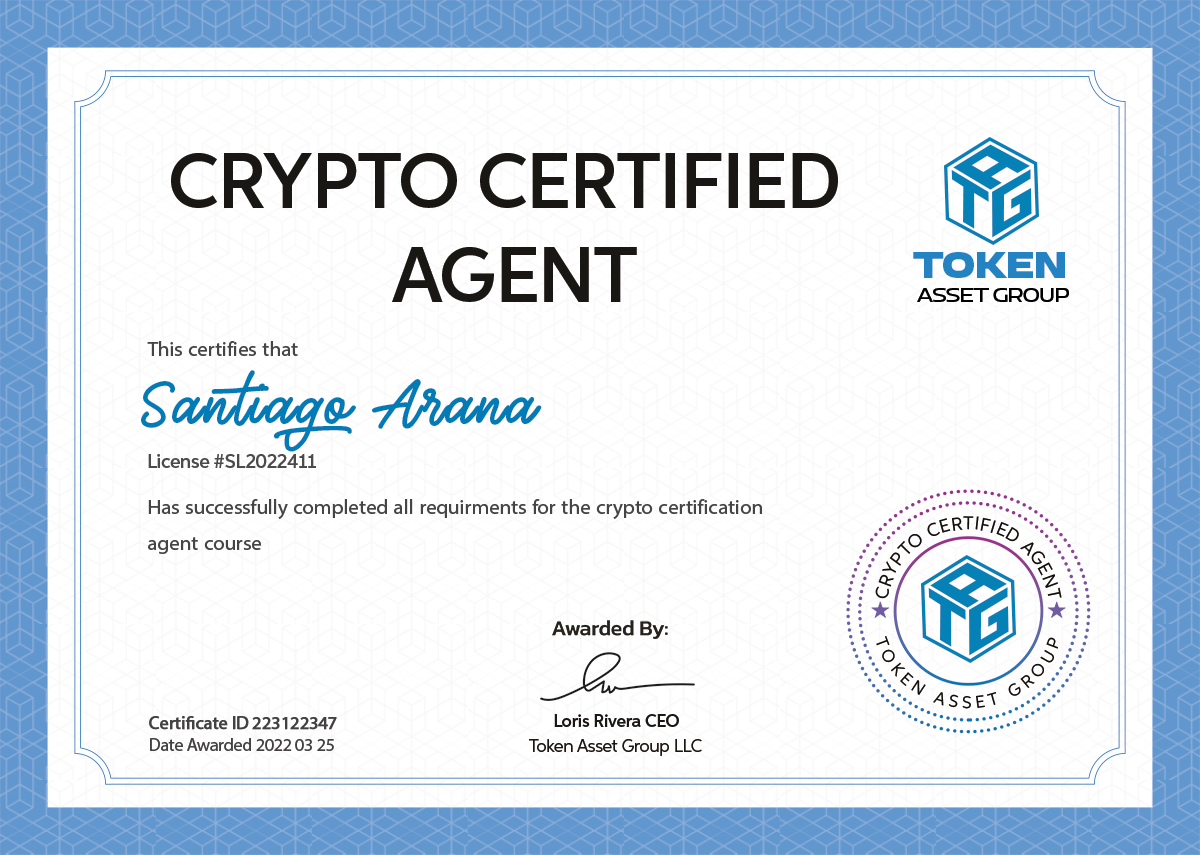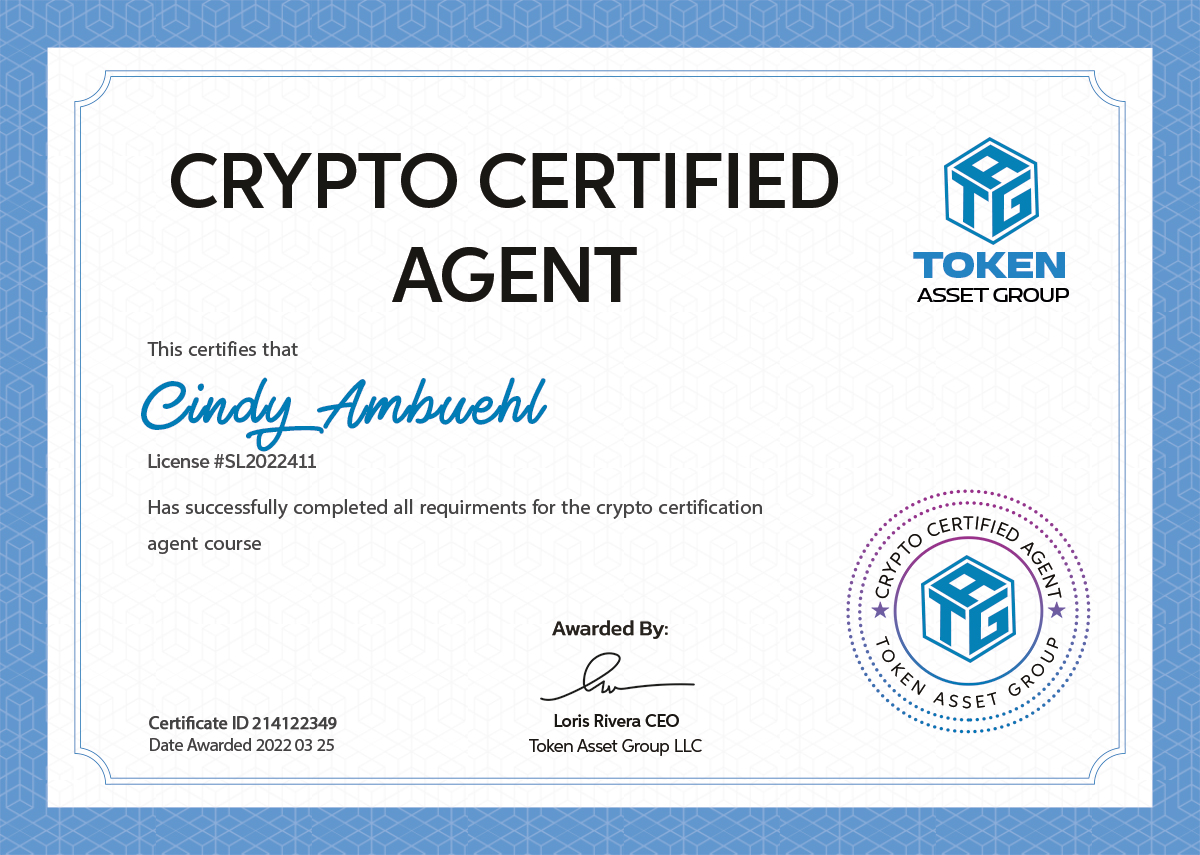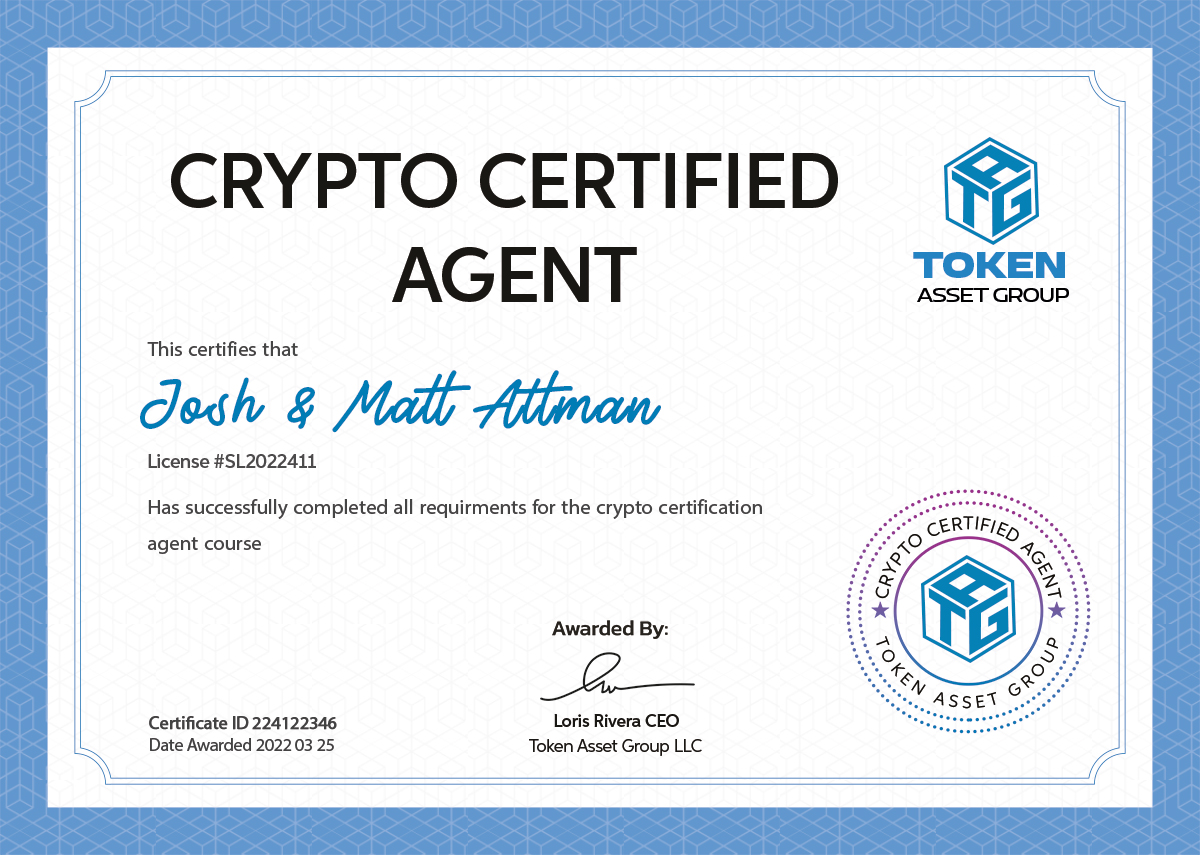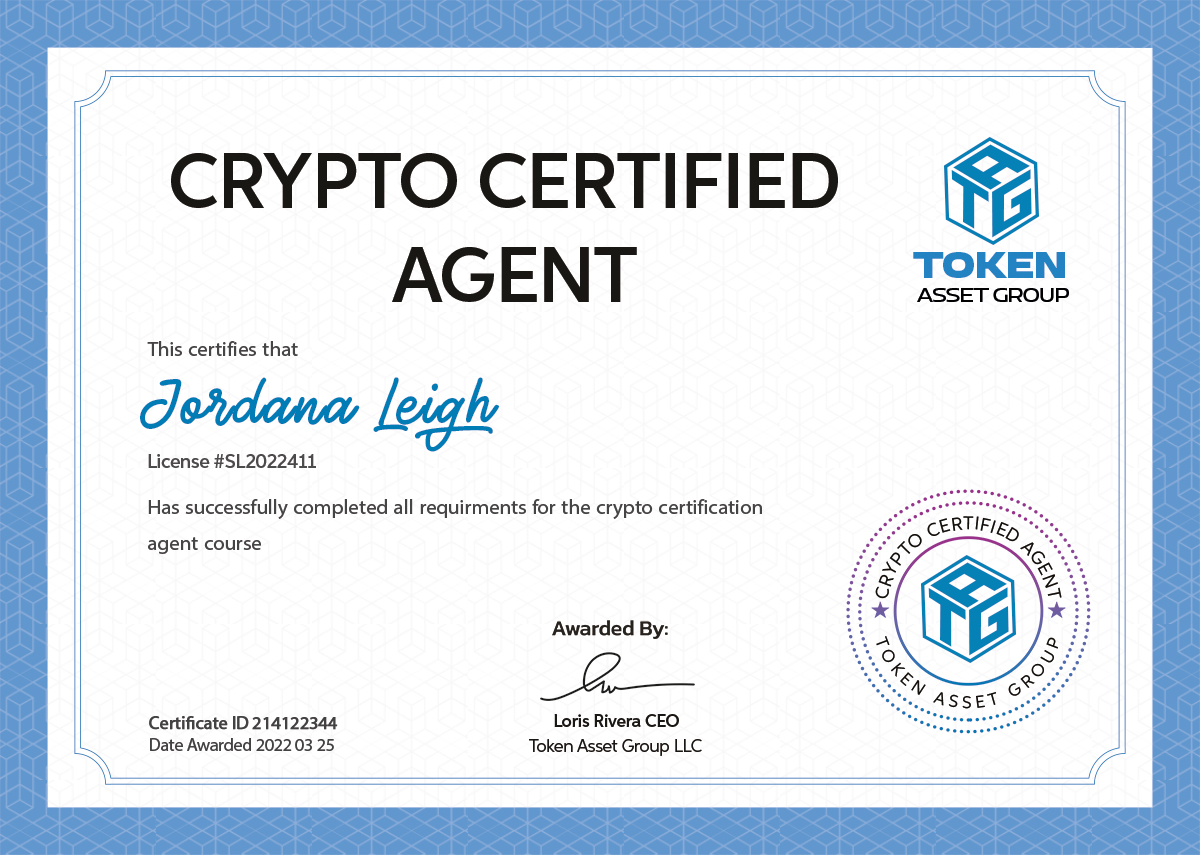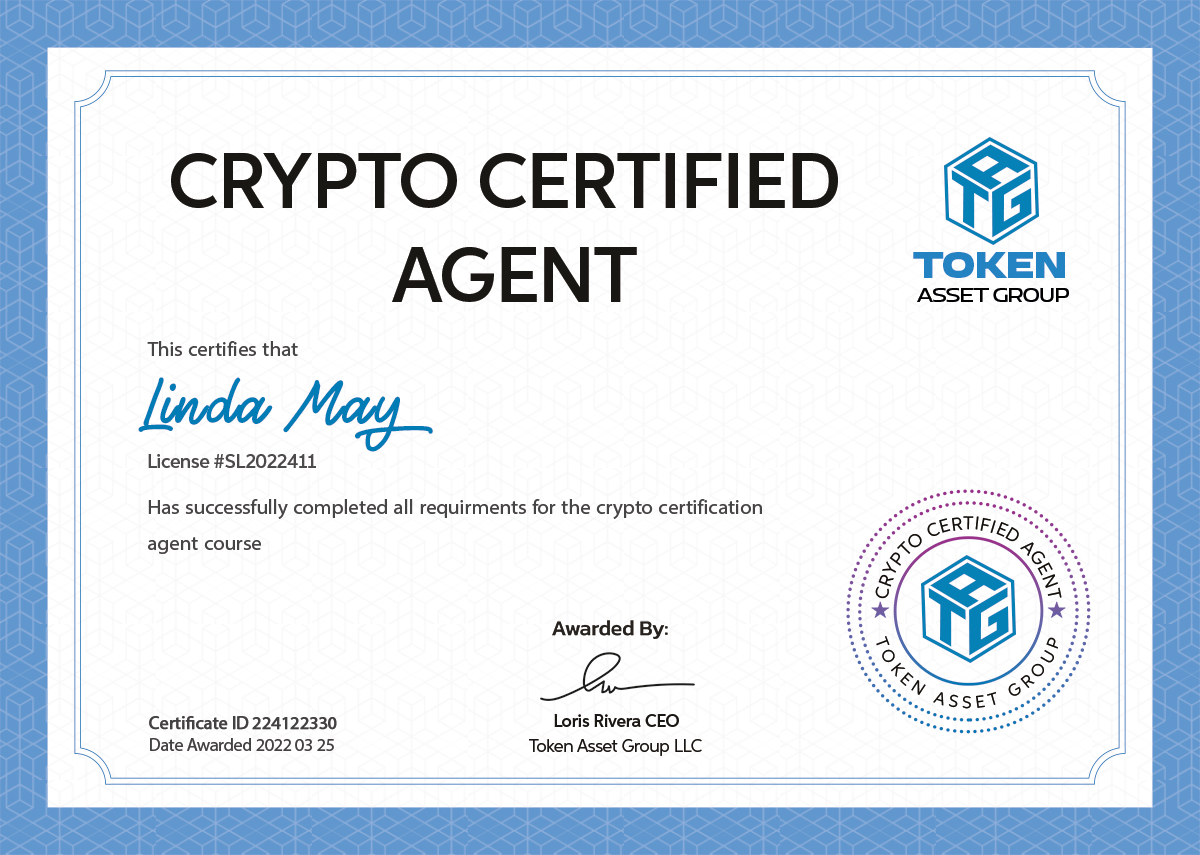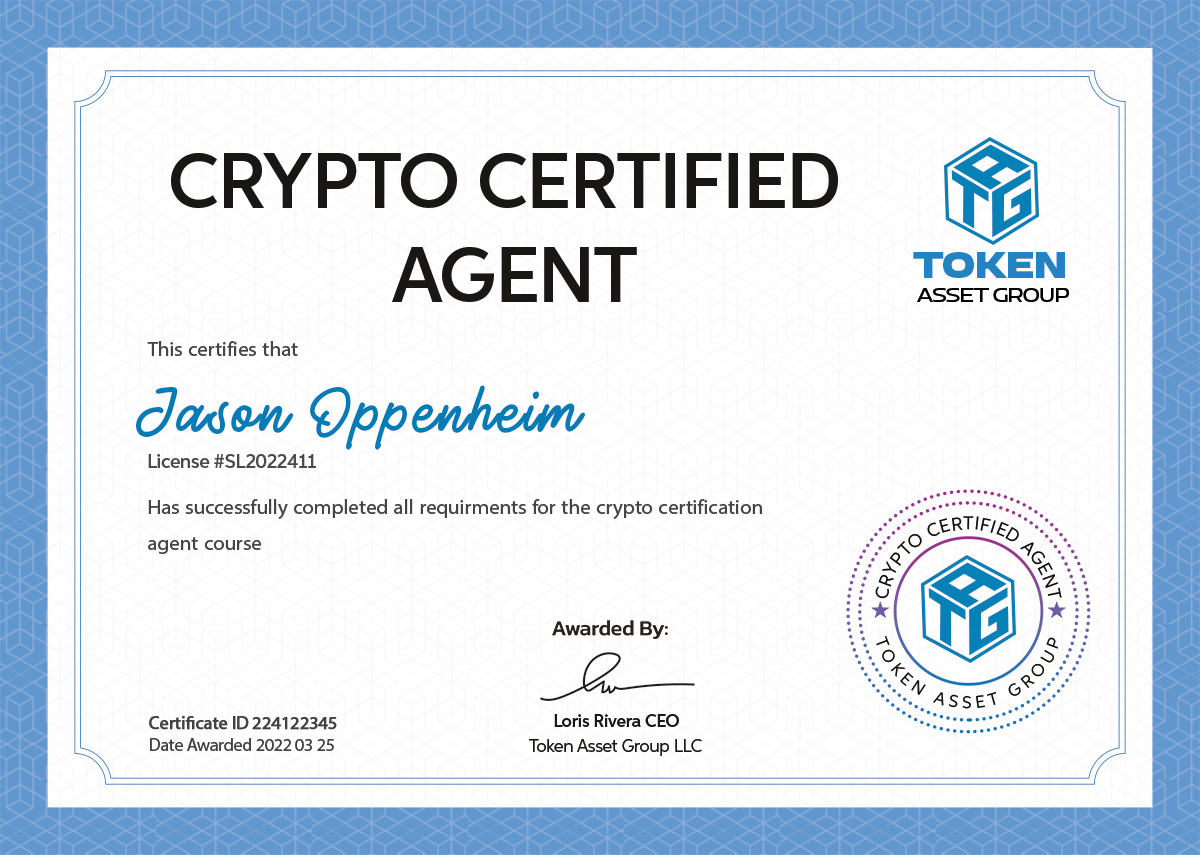Real Estate Tokenization via the NFT
Real Estate is getting a make over by using the power of the NFT to tokenize real property into an digital asset.
Blockchain-based technologies offer unparalleled transparency, immutability, and security across a wide variety of industries, sectors, and applications. Innovative companies are utilizing this revolutionary technology to redefine the internet with a focus on digital ownership. Recent investment trends have made blockchain one of the most active sectors of private equity investments.
The blockchain sector is one of the fastest evolving technology segments in terms of both the pace of innovation and the market sectors being affected. The result is an environment that requires deep technical knowledge, an understanding of how decentralized capital will disrupt industries, and how community behaviors and governance will be impacted by the rise of DAOs. What the internet did for the frictionless distribution of information, the blockchain can now do for the distribution of value. This represents a true paradigm shift.
Example of Blockchain disruption
BlockFi is a strong example of what a blockchain company can attain in terms of potential. AV first invested in the company’s $1.5 million seed round at a $5 million valuation in 2018 and most recently in a $500 million Series E at a $4.25 billion valuation in 2021. The company has clearly demonstrated our ability to pick winners and secure allocation in this hotly contested sector.
BlockFi provides diversified financial services for cryptoassets — bringing liquidity, transparency, and efficiency to the digital financial market. The company began primarily as a lender against cryptoassets such as Bitcoin, Ether, Litecoin, Stablecoin, and Gemini Dollar. It has since expanded its line of products to include a crypto trading platform and a mobile application. BlockFi’s customer base has expanded to include well-known institutional clients such as Fidelity, DRW, and Jump Capital.
How will the Blockchain effect Real Estate Today?
Every existing industry is now asking itself, “how will blockchains affect or disrupt our present structures?” At the same time, these decentralized technologies have to solve real problems for real people, and so as venture capitalists it’s incumbent upon us to unpack fact from fiction.
Who will manage your Real Estate Project?
Token Asset Groups process when analyzing potential investments:
- Market opportunity. Is there a market that is in need of a defined solution, and can the market’s size support multiple networks?
- Strong founders / teams. Founder / market fit is critical. Ideally, we like to see previous startup experience and success on their resumes.
- Experienced co-investors. A strong syndicate of investors can help shape strategy, products / services, assist in recruiting, and make valuable introductions.
- Solving difficult problems. This generally means there is a technical complexity / IP and the potential to build strong competitive moats.
- Attractive valuation and terms. We look for prices and terms that will not inhibit management’s ability to raise downstream rounds, we always aim for pro-rata rights, and make sure the potential reward is worth the investment risk.
What kind of investor typically invests in a Blockchain portfolio?
Who knows blockchain technology better than anyone esle? Token Asset Group has successfully lanuched Blockchain projects that have generated over 100 million dollars this year alone.
Many products or services tout themselves as revolutionary, but the blockchain space is one of the few that has the true potential to transform whole industries.
As blockchains employ digitally-native currencies, and tokens to many projects are publicly traded, investors require a long-term horizon, a strong constitution, and an ability to withstand the volatility that comes with extreme innovation.
Blockchains services and products have already created entirely new markets, including NFTs, in-game economies, and globally collaborative ownership via DAOs to astonishing success. And to think that this technology has only been around for slightly more than a decade. Blockchains have yet to reach anywhere near their full potential.


